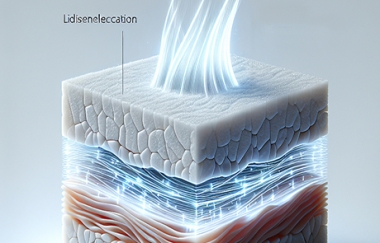אנו מציגים כאן מאמר אורח (באנגלית) מאת ד”ר איאן פירון מחברת whatIF? Consulting העוסקת במחקר וייעוץ קליני, אשר מגיב להודעה שפירסמנו מטעמה של האגודה למלחמה בסרטן : האם הקביעה שסיגריה אלקטרונית מזיקה פחות ב- 95% מתגלה כ”פייק ניוז”? אשר עסקה בביקורת של פרופ’ מק’קי על רשות בריאות הציבור באנגליה בשל תמיכתה בשימוש בסיגריות אלקטרוניות ככלי עזר לגמילה מעישון.
במאמר מביע ד”ר פירון תמיהה על הקביעה של פרופ’ מק’קי על כך שאין עדויות מספקות לכך שהשימוש בסיגריות אלקטרוניות משיג שיעורי גמילה משמעותיים מעישון סיגריות בעירות (בעיקר לאור המחקר שפורסם לאחרונה ב-NEJM שהדגים יתרון מובהק לסיגריות האלקטרוניות בשיעורי גמילה על פני תחליפי ניקוטין אחרים) . כמו כן, הוא טוען שלנוכח העובדה שסיגריות אלקטרוניות אינן מכילות כמעט כלל את הכימיקלים המסרטנים והרעילים הקיימים בסיגריות בעירות, הטענה שאין עדיין הוכחה לכך שהן מזיקות פחות היא לא סבירה.
לפניכם המאמר המלא :
I write with concern following your recent coverage of the article in the UKs Independent newspaper in which a senior Public Health academic, Professor Martin McKee, described his views on the risks of using of electronic cigarettes1. My concern arises because cigarette smoking is a habit that kills half of the people who undertake it. E-cigarettes, and their nicotine delivery without the many thousands of chemicals which can cause major diseases such as heart disease, lung disease and cancer, have the potential to save the lives of hundreds of millions of people around the world.
It has been estimated that there are at least a billion smokers in the world2. For many of these people, their habit will result in early death and disability due to their inhaling toxic chemicals caused by the burning of the organic matter in the tobacco leaves. In contrast, when heating a nicotine-containing liquid these toxic chemicals are neither produced nor inhaled by the user. It is for this very simple reason that electronic cigarettes are significantly less harmful than tobacco cigarettes.
Many public health authorities around the world, including Public Health England, have embraced this and are rightly recommending that smokers switch to these safer forms of nicotine delivery3. Of course, licensed medicines are available for doctors to prescribe to smokers to enable their cessation from cigarette smoking; however, these are largely ineffective in the hands of smokers. It is extremely surprising that Professor McKee suggested that there is no evidence that e-cigarettes are useful as a quitting aid. Surprising because exactly 3 months ago yesterday, results from a gold standard randomised controlled trial of the efficacy of e-cigarettes in smoking cessation were published in the New England Journal of Medicine4. These results, which came from a group located just 5 miles away from Professor McKees own office, clearly demonstrated that e-cigarettes are twice as efficacious in helping smokers quit than licensed nicotine replacement therapy, when either was combined with behavioural support. Such a significant enhancement of the efficacy of a treatment for the worlds largest cause of preventable death cannot, and should not, be ignored.
It is interesting that the Independent newspaper article also chose to highlight a study which suggested that e-cigarette vapour can damage the lungs. Quoting Dr. Aaron Scott of the UKs University of Birmingham, the article stated We dont know what the long-term data is but we have shown that its cytotoxic and its pro-inflammatory, just like cigarette smoke is over the short-term. However, in Dr. Scotts own published work, he has not used cigarette smoke as a control exposure5. Thus, his work is unable to discern whether e-cigarette vapour is as toxic and inflammatory as cigarette smoke. It is however extremely likely to be, given the absence in e-cigarette vapour of highly damaging respiratory toxicants such as acrolein and formaldehyde which are present at very high levels in cigarette smoke.
To present a balanced view, it is important to note that the Independent article did contain some views that are correct and which elude to the need for proper regulation of e-cigarettes to maximise their ability to help smokers quit while minimising their potential to cause harm. Throughout Europe, manufacturers are required to provide regulatory authorities with data on the chemical components of both e-cigarette liquids and the vapours produced when they are heated. This is essential to ensure that users of e-cigarettes are not exposed to chemicals with known toxicological effects. Many of the major manufacturers go above and beyond what is required by European law, and have implemented within their development facilities product stewardship capabilities which ensure e-cigarette quality and minimise user risk. By using products from such manufacturers, smokers who switch to e-cigarette use will be minimising the risk to their own health and maximising their chances of quitting the habit that could kill them.
A recent modelling study estimated that the widespread availability of e-cigarettes has the potential to avert 6.5 million deaths this century in the US alone, resulting in the gaining of over 86 million life years in a single country7. The most worrying issue with the Independent article is its publication in a major British newspaper which is circulated in print and online to tens of thousands of people each day. For every two smokers who read the article and decided not to use e-cigarettes to wean themselves away from their deadly habit, one will die early as a result. Newspaper editors need to understand the horrifying potential of their publishing misleading articles when seeking to sell newspapers.
Dr. Ian M. Fearon
Independent Scientific Consultant
Disclosure: whatIF? Consulting Limited provides clinical study, regulatory affairs and general scientific consultancy to manufacturers of nicotine and tobacco products. The views expressed in this letter are those of Dr. Ian M. Fearon. No other party has contributed to this letter or reviewed its contents.
Ref:
1. https://www.e-med.co.il/emed/new/usersite/content.asp?CatID=1&ContentID=751048
2. https://www.who.int/news-room/fact-sheets/detail/tobacco
4. Hajek P, et al. A Randomized Trial of E-Cigarettes versus Nicotine-Replacement Therapy. New England Journal of Medicine, 2019. doi: 10.1056/NEJMoa1808779.
5. Scott A, et al. Pro-inflammatory effects of e-cigarette vapour condensate on human alveolar macrophages. Thorax, 2018;73:1161-1169.
6. https://ec.europa.eu/health/sites/health/files/tobacco/docs/dir_201440_en.pdf
7. Levy DT et al. Potential deaths averted in USA by replacing cigarettes with e-cigarettes. Tob Control, 2018;27:18-25.



















השאירו תגובה
רוצה להצטרף לדיון?תרגישו חופשי לתרום!